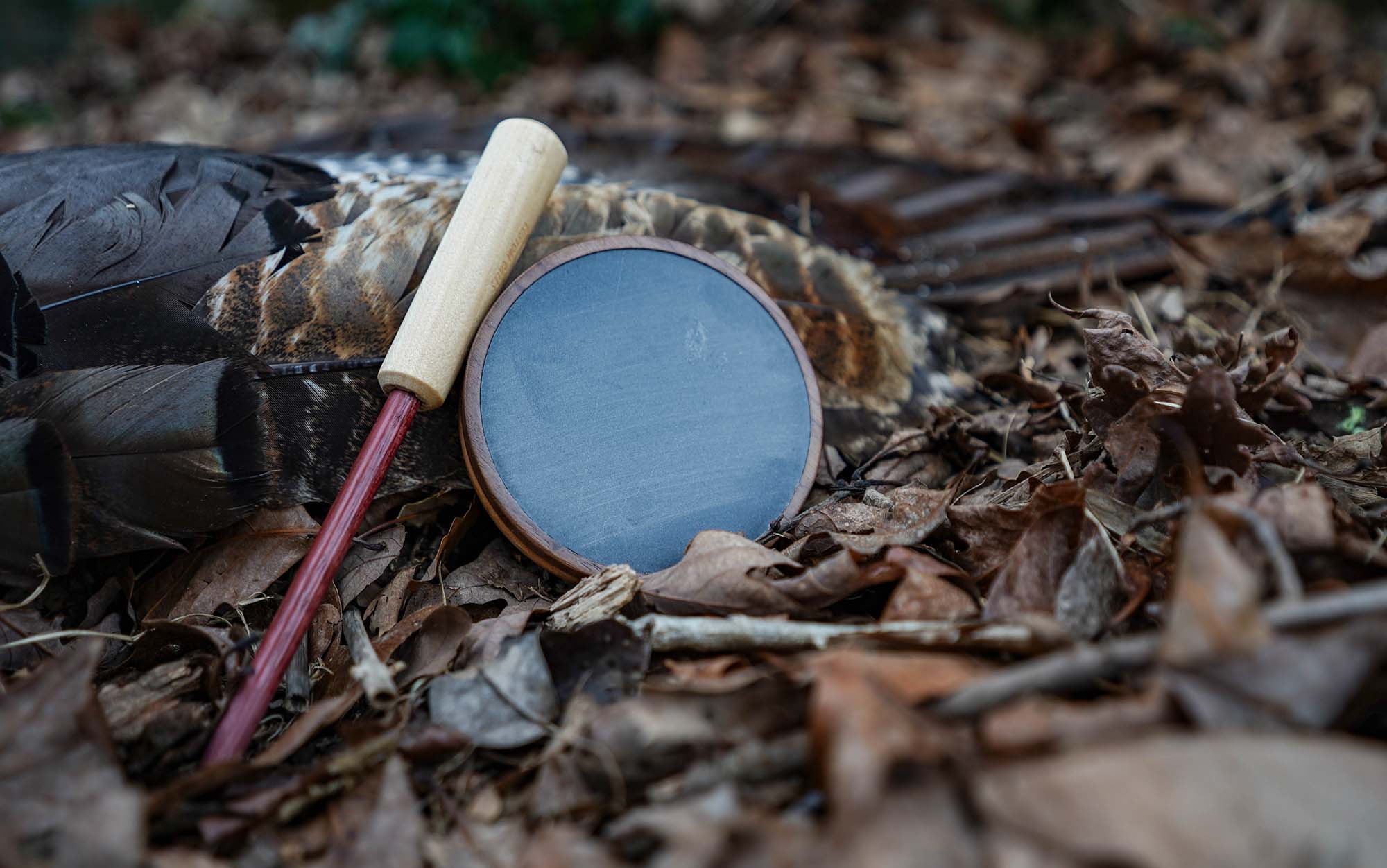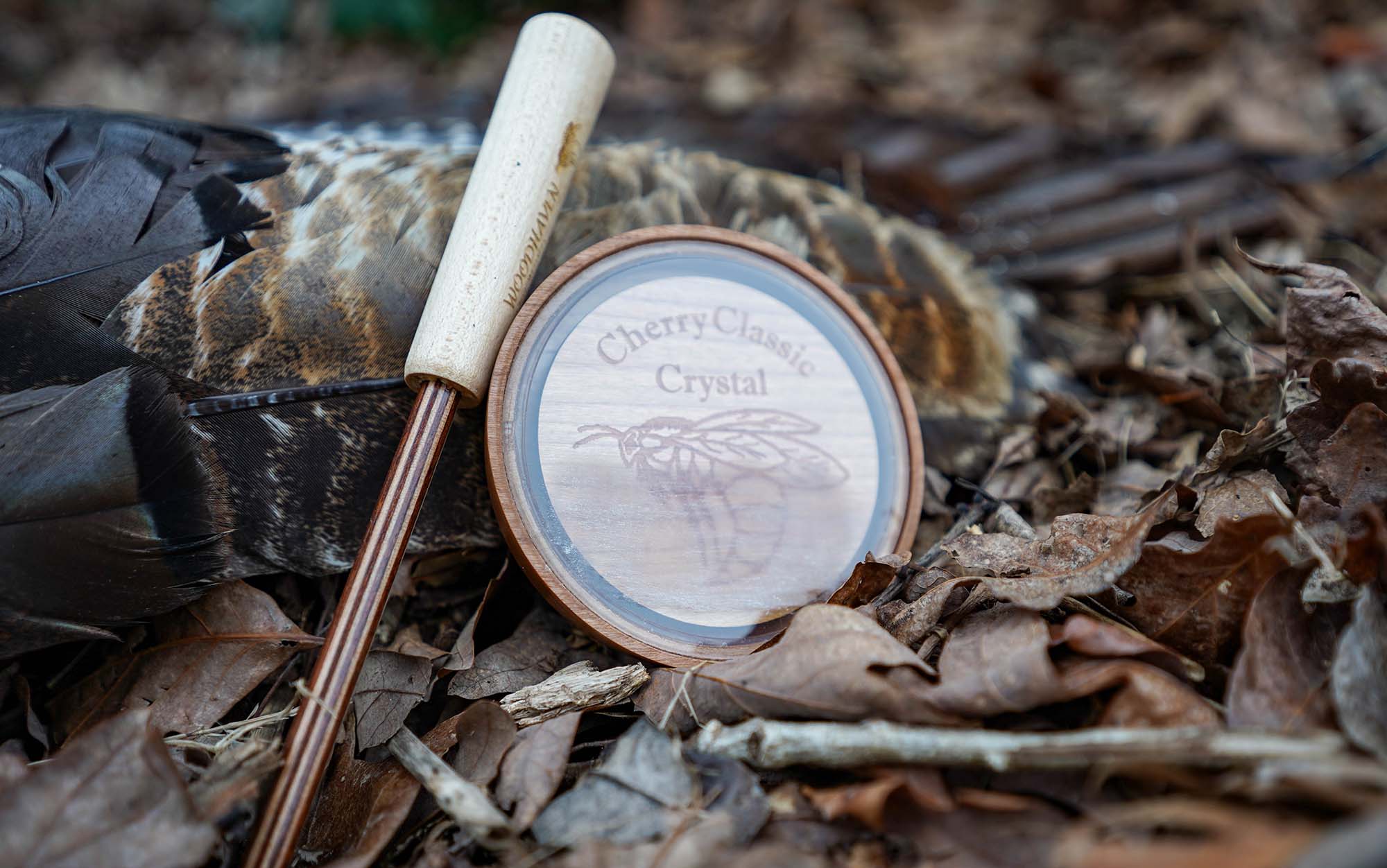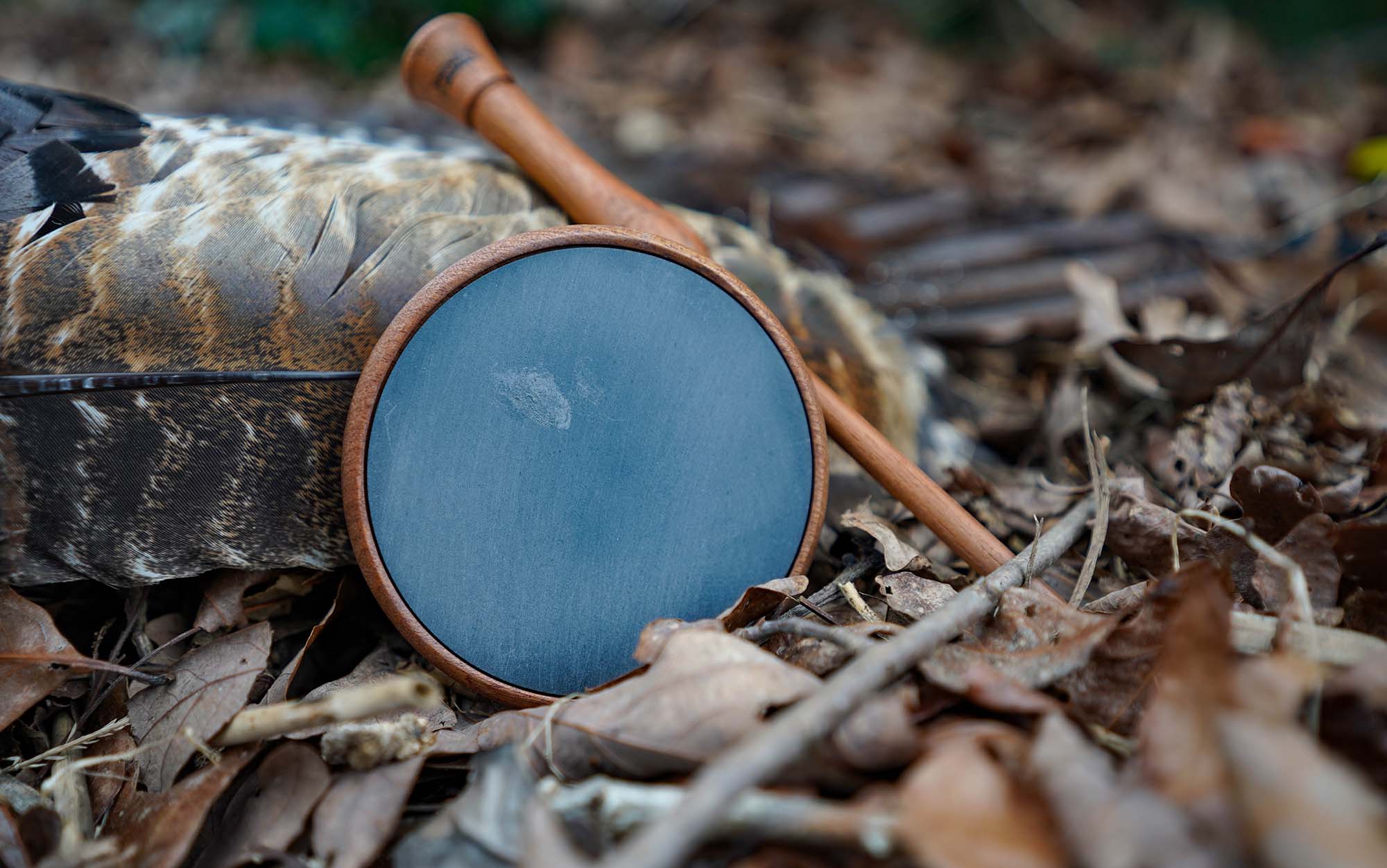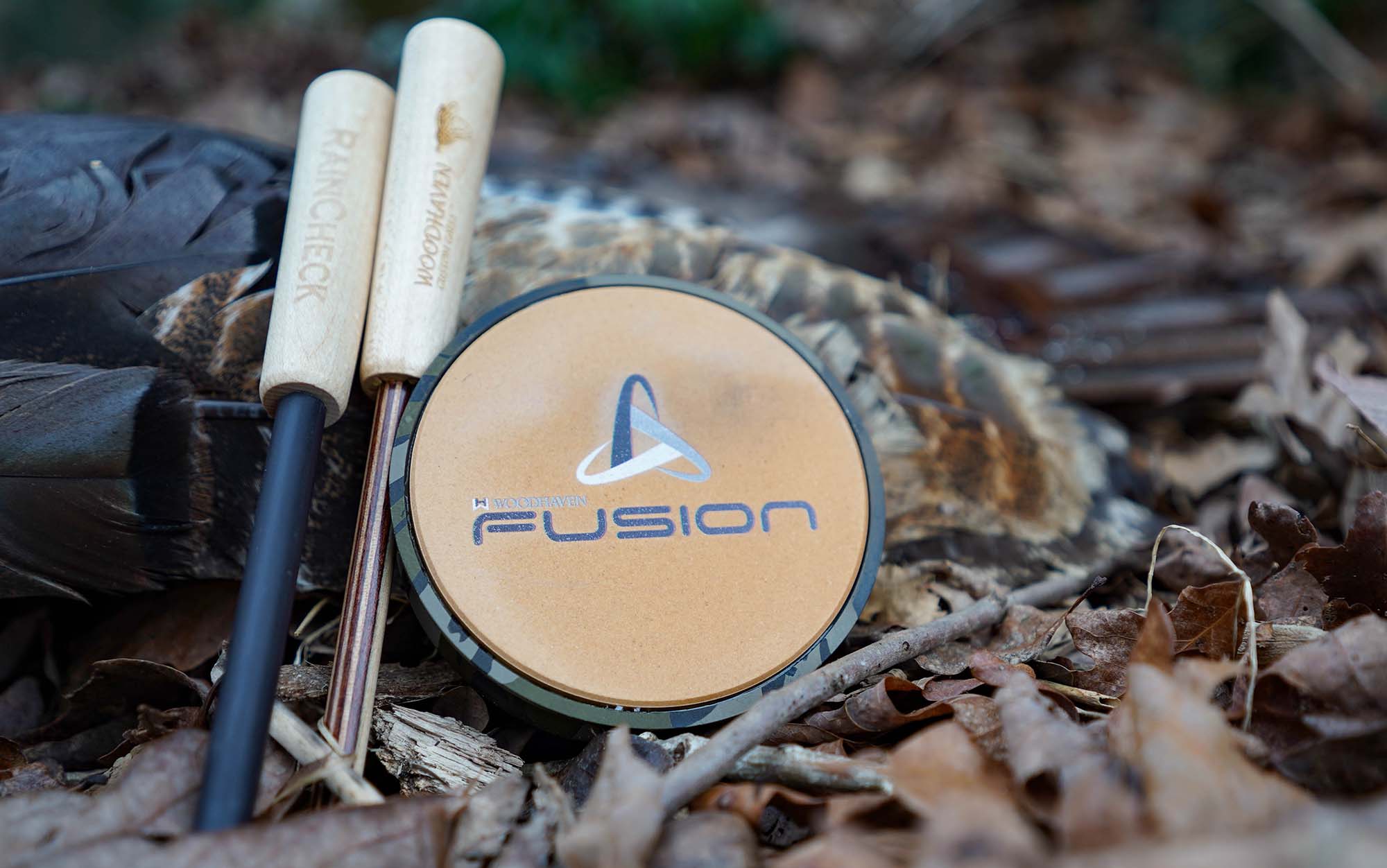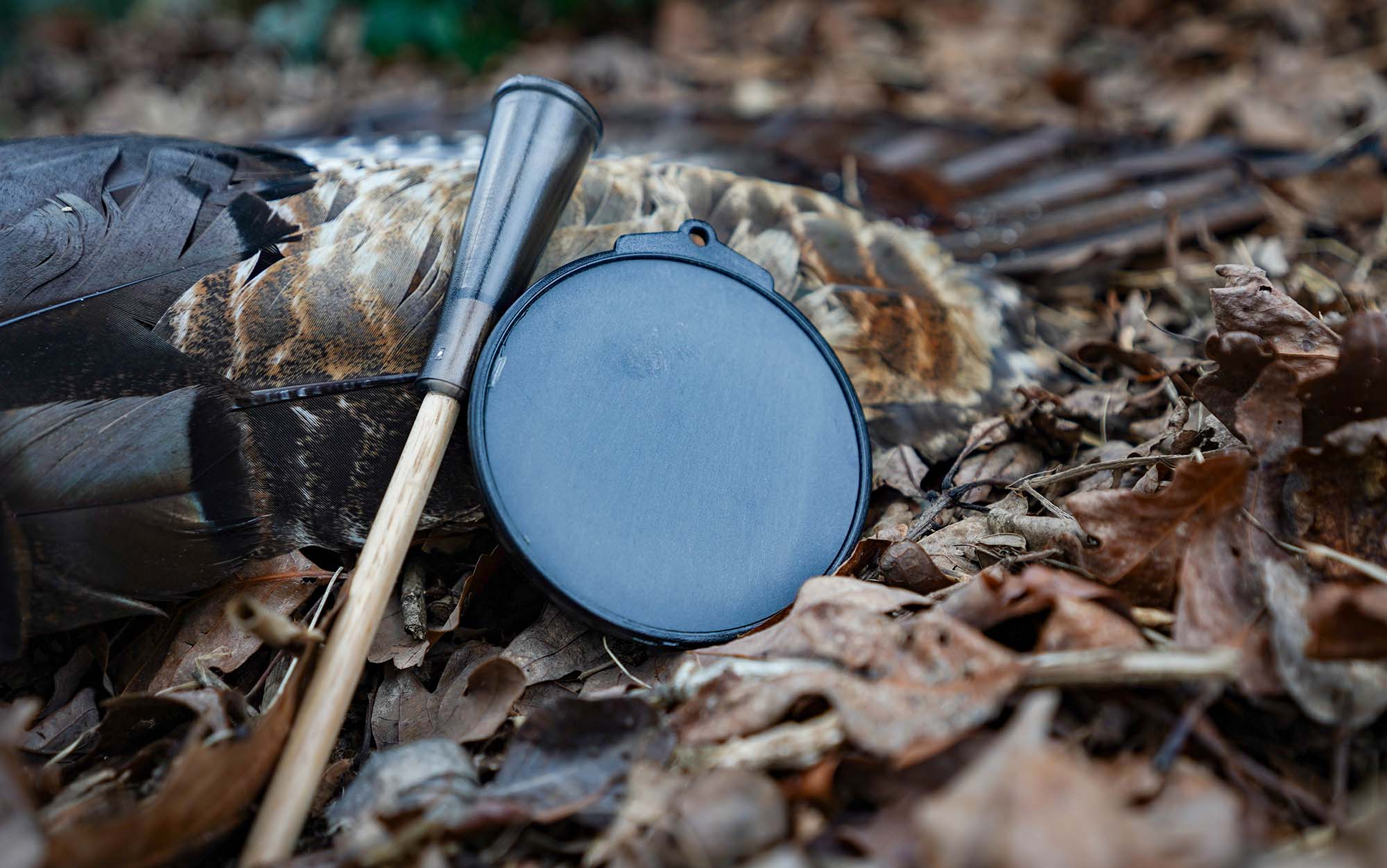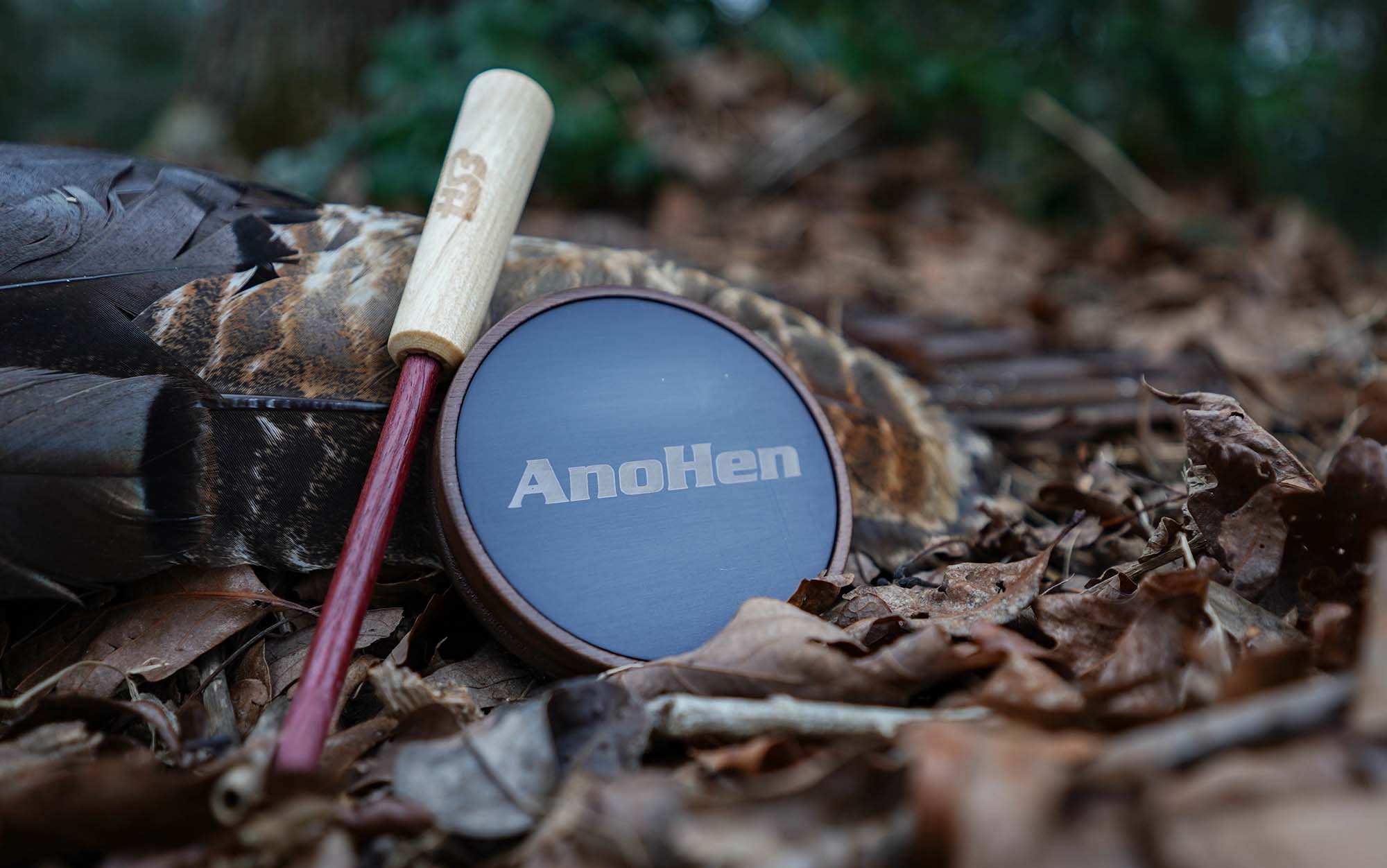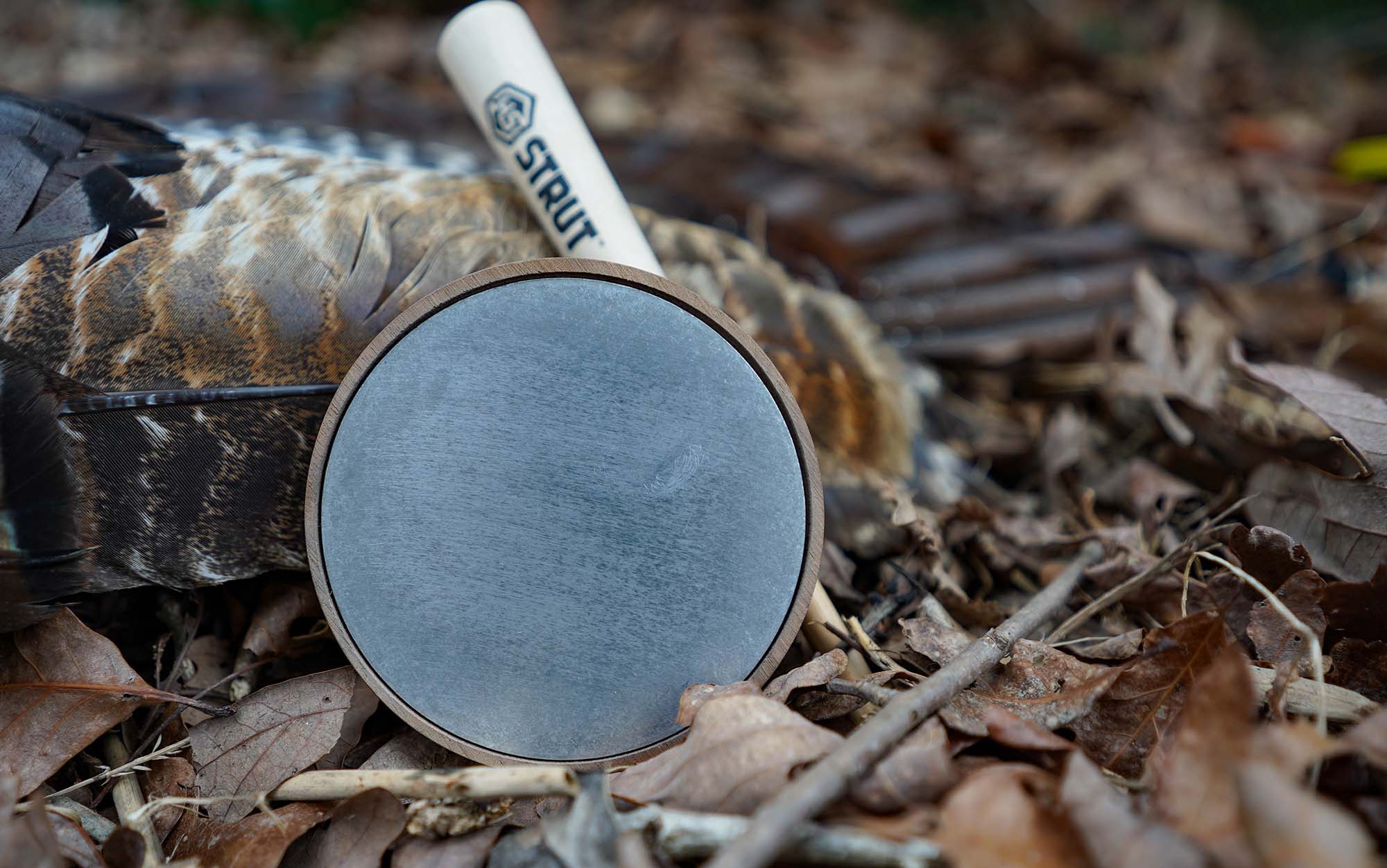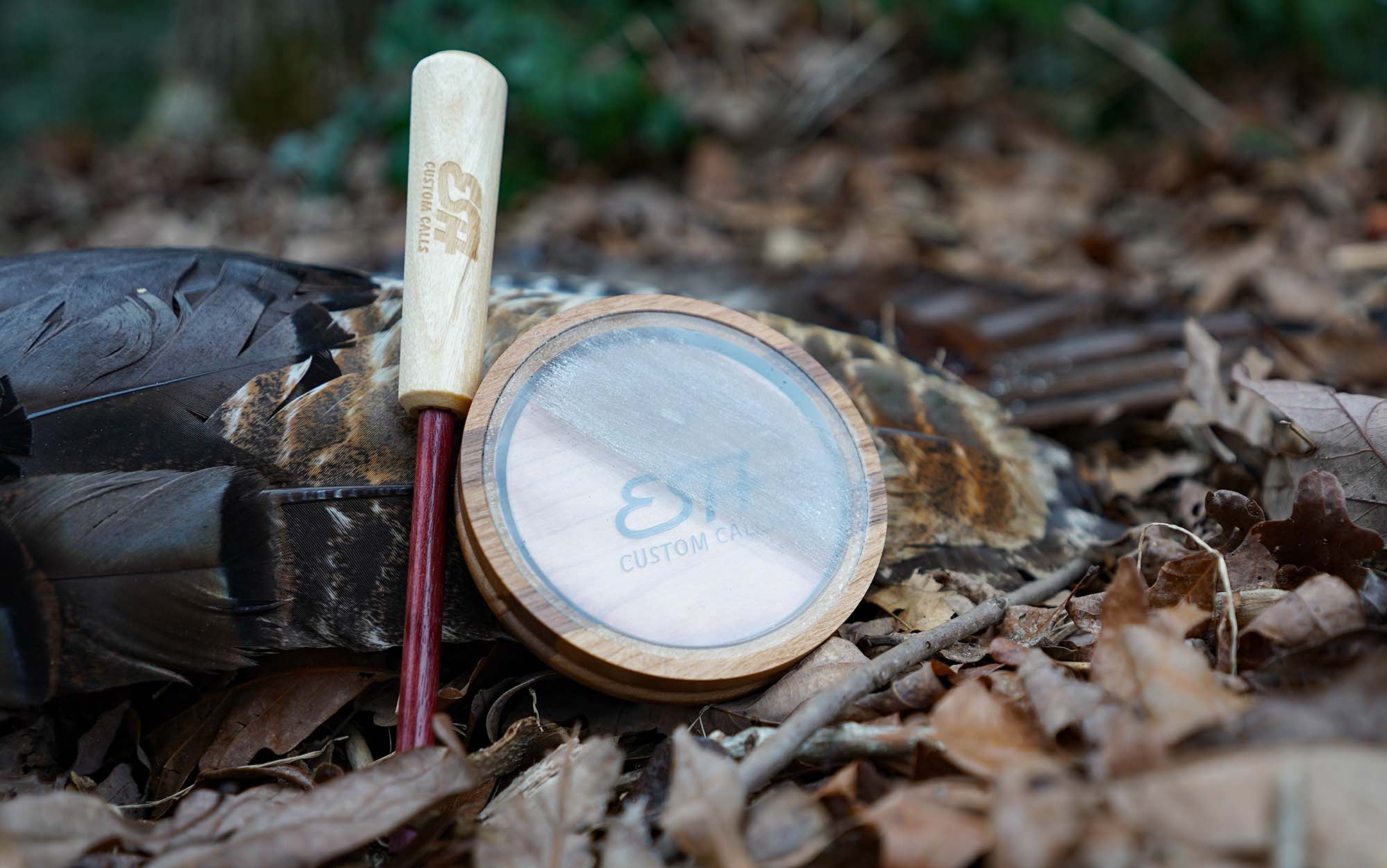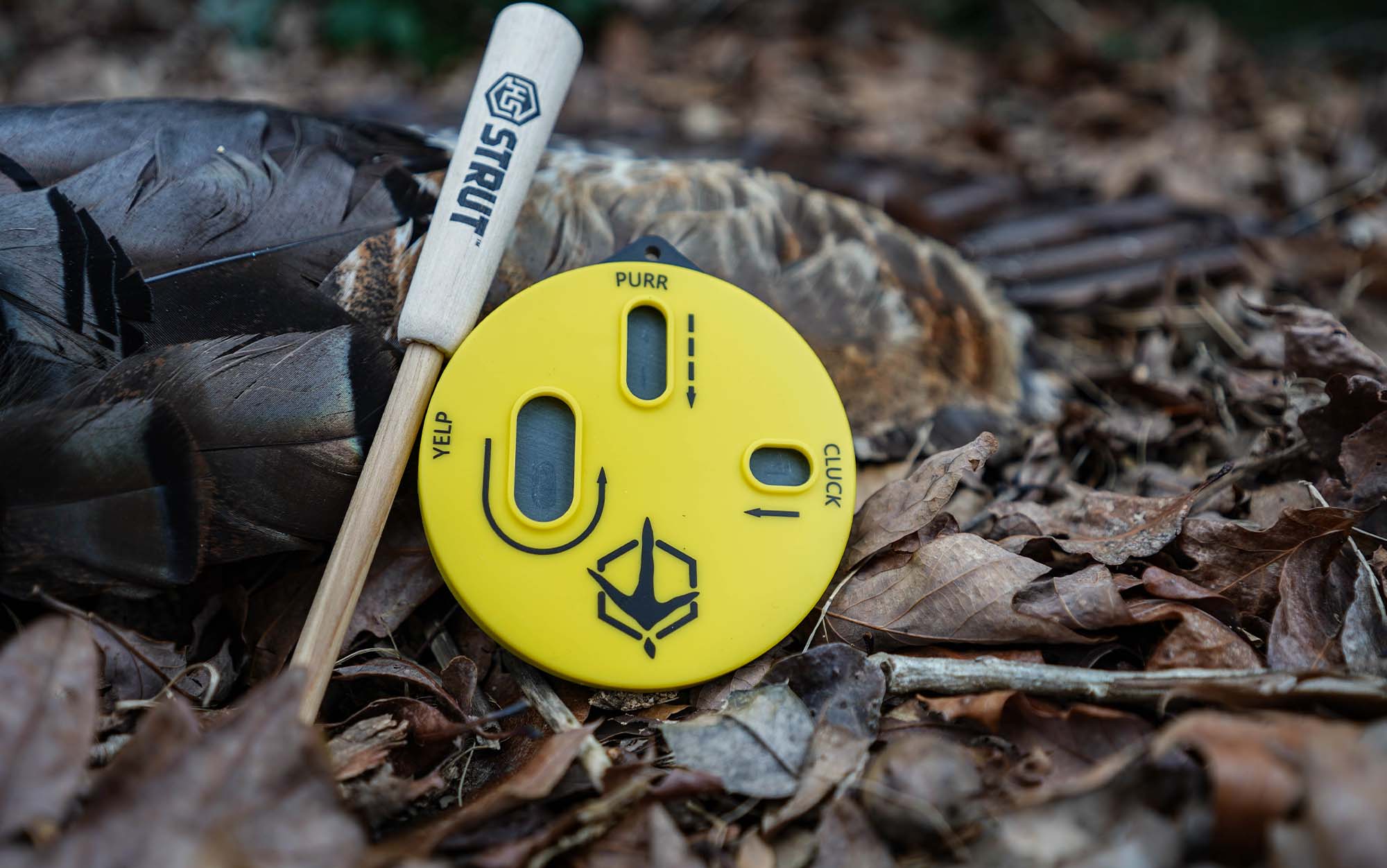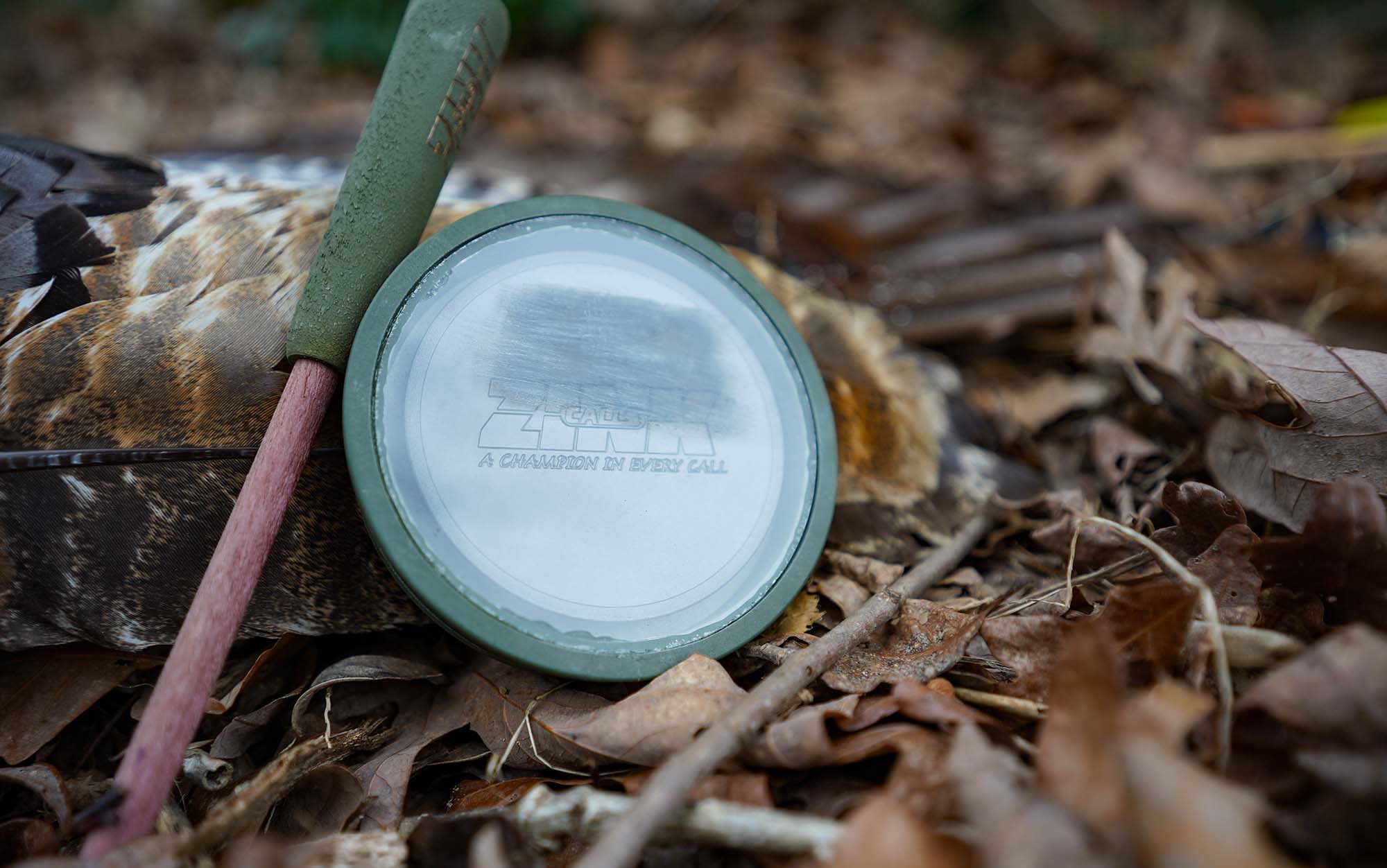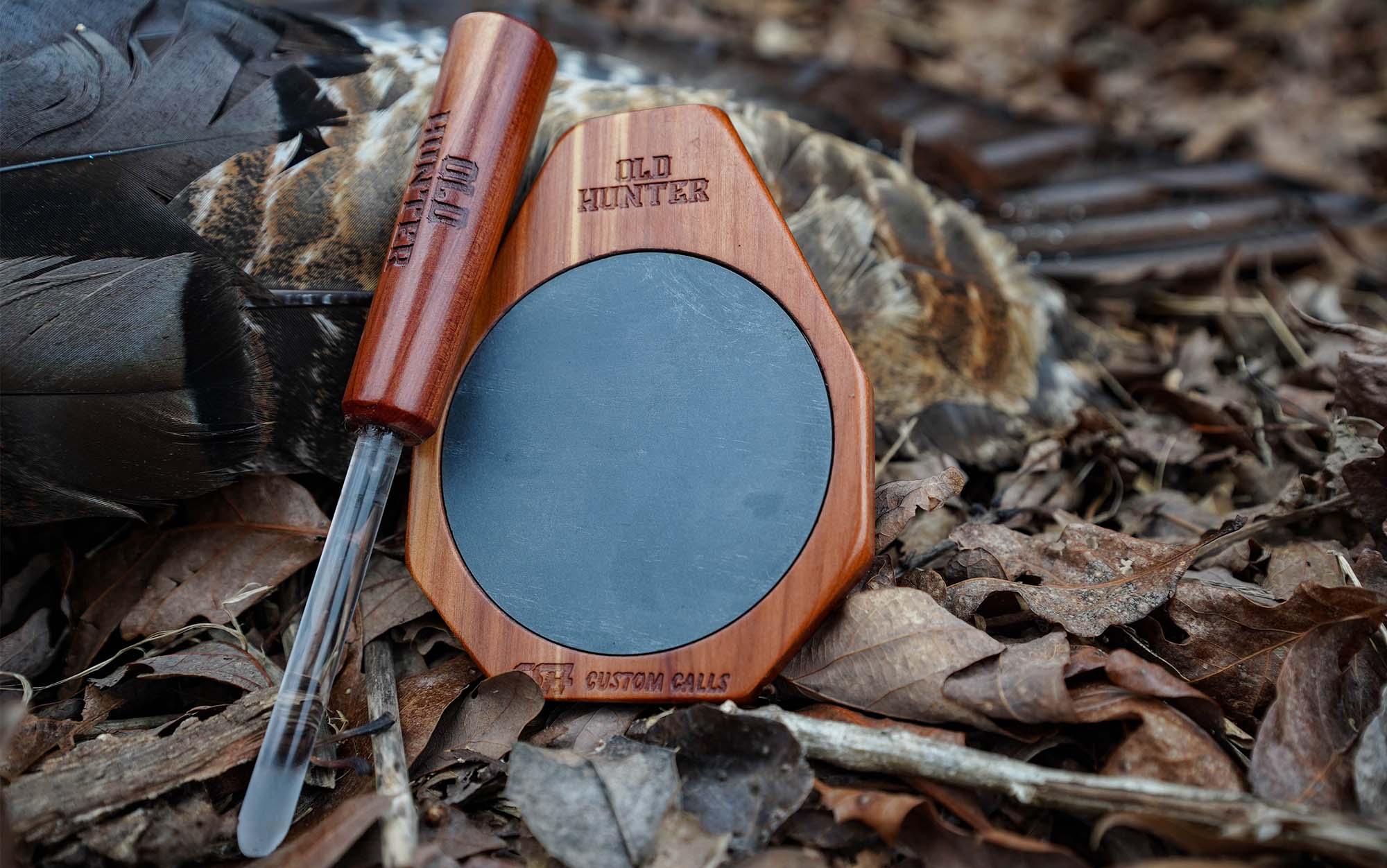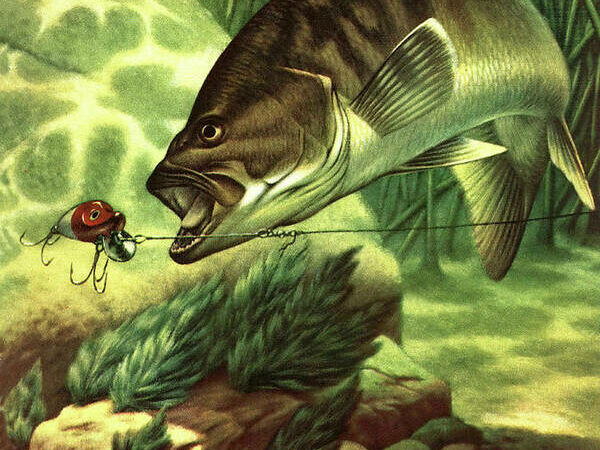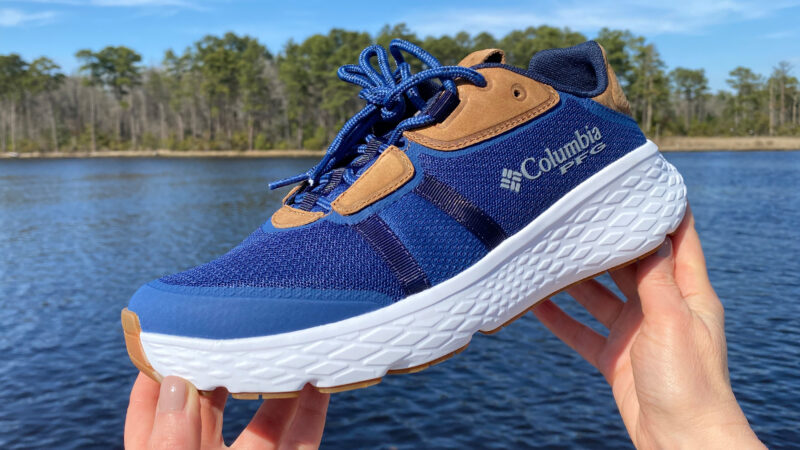The Best Slate Calls of 2024, Tested and Reviewed
We may earn revenue from the products available on this page and participate in affiliate programs. Learn More ›
Best Slate
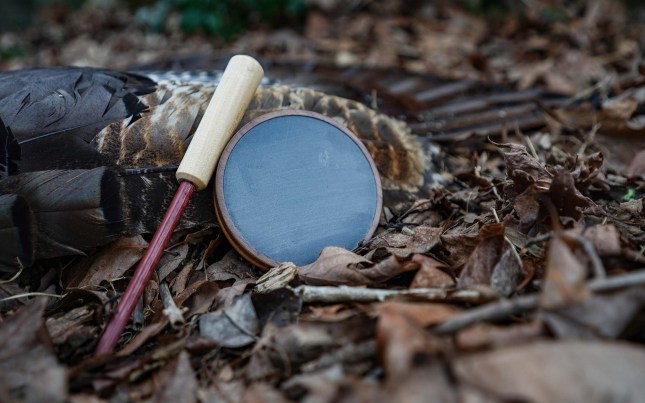
Esh Old Hunter Classic
Best Glass
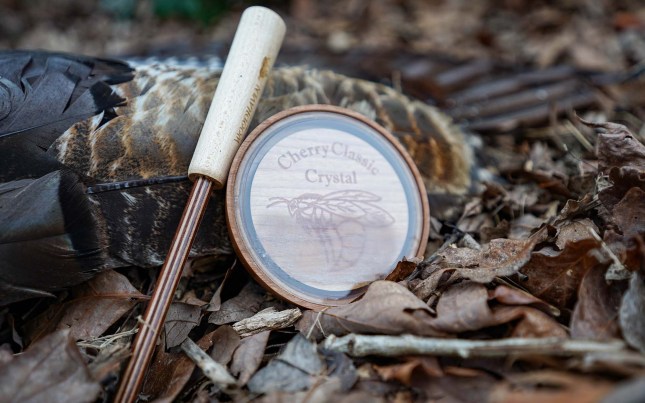
Woodhaven Cherry Classic Crystal
Best Value Slate
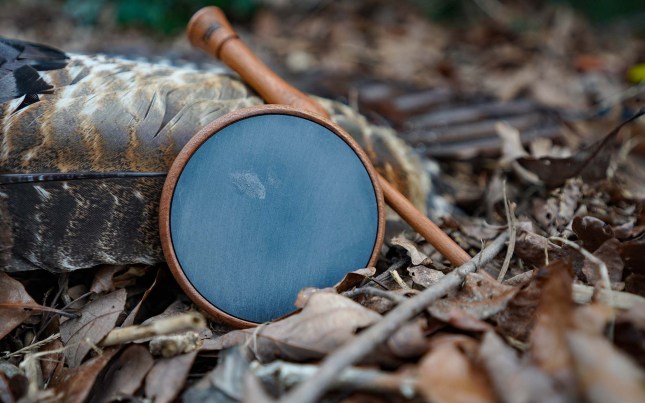
Primos Rare Breed
If I try to purr on a diaphragm I can make a sound, but it won’t be a turkey call. On the other hand, with my slate call I can purr, yelp, cutt, cluck, tree cackle, and even kee-kee run without much practice. The ease of creating realistic calls is why I rely heavily on a slate call each spring.
But the “slate call” I use most often is actually a glass call, which brings up the confusing topic of turkey call nomenclature. Technically what I have reviewed here is a roster of the best pot calls. There are five common surfaces for pot calls: slate, glass, crystal, ceramic and aluminum. However all of these are commonly referred to as “slate calls” despite not all of them having any slate in their construction. So to keep things simple, and to make sure you get a review of all the best calls on the market, I’m including all pot call surface types in this review and I’m labeling them all “slate calls.”
I tested 14 of the best slate calls on the market to bring you my top ten picks. The calls I’ve tested range from under $20 budget options to premium production calls around $100. Here are my top choices.
- Best Slate: Esh Old Hunter
- Best Glass: Woodhaven Cherry Classic Crystal
- Best Value Slate: Primos Rare Breed
- Best All Weather: Woodhaven Fusion Ceramic
- Best Under $30: Primos Ol’ Betsy
- Best Aluminum: Esh Anohen
- Best Value: Hunter Specialties Custom Craft Aluminum
- Best Double Sided: Esh Flip Over
- Best for Youth: Hunter Specialties Cookie Cutt’r
- Best Value Glass: Zink Thunder Ridge Crystal
How I Chose the Best Slate Calls
I’m not a competition caller or an exceptionally good turkey hunter. I’m an average hunter who loves hunting turkeys. So while I can’t run a pot and peg like Rodney Eckstine, if a call sounds good in my hands, chances are you’ll be able to run it well too.
Here’s how I evaluated the slate calls for the average hunter.
Sound
My goal was to figure out which calls sound like a turkey, and which vocalizations each call excels at making. I recorded each call on a Rode shotgun mic so you can hear them purr, yelp, cutt, and cluck for yourself. All the calling was done with the included striker.
While using the calls, I paid attention to their volume and tone and wrote my observations in each review. Having all the calls in hand and directly comparing them was very helpful in narrowing the field and choosing the best sounding in each category.
Ease of Calling
One of the main advantages of a slate call is that they’re easy to use. It’s not difficult for a new hunter to produce turkey sounds or an advanced caller to hit subtle notes and control volume. I judged ease of calling by how consistently I was able to produce specific calls. I also tried to induce common errors like gripping the call or striker too tightly or using too much pressure.
Build Quality
Wood friction calls can be heirloom items, and they attain sentimental value as they contribute to more punched tags. So, you want a call that’s built well, looks nice, and will last. I dinged calls that didn’t use quality wood and showed poor craftsmanship. I was especially critical of calls over $80.
Features
Included in this review are double-sided calls, calls designed for beginners, and calls made to work in the rain. I evaluated those features with their own tests like using all-weather calls in the rain and seeing if beginners could successfully run a call made for them.
Best Pot Calls: Reviews and Recommendations
Best Slate: Esh Old Hunter Classic
Key Features
- Walnut and cherry horizontal laminate pot
- Slate over glass
- Comes with a Dymondwood striker
- Lifetime warranty (Full refunds available within 90 days of purchase)
- Price: $97
Pros
- Great sound quality
- Excels at mid to close-range calling
Cons
- My sample had some fit and finish flaws
The Old Hunter Classic brings out the best sound qualities of slate through some innovative construction. Esh combines two of the best pot call woods, cherry and walnut, in a horizontal laminate. The cherry is at the bottom and walnut on top, unlike most calls that use a vertical lamination. They also use a glass soundboard and a Dymondwood striker. Those elements combined with quality slate produce a great-sounding turkey call.
The Old Hunter Classic isn’t as loud or high pitched as the Cherry Classic, but it’s not meant to be. Slate calls shine at convincing a tom to close the distance. Raspy, excited-hen yelps and cluck and purrs, are this call’s bread and butter.
My call has some minor but noticeable fit and finish issues, mainly rough spots and glue specs on the pot, which you don’t expect on a nearly $100 call. Yet, I love the sound quality, and the call is very nice overall.
Best Glass: Woodhaven Cherry Classic Crystal
Key Features
- Includes two strikers, conditioning kit, and lid
- Can be customized with engraving or photos under the crystal
- Made from quarter-sawn cherry
- Also available in slate
- Made in USA
- Price: $95
Pros
- High pitched and raspy
- Loud
- Well made
Cons
- Can’t call as softly as others
If you want to make raspy, two-tone yelps and aggressive cutts that reach the next ridge, the Cherry Classic needs to be in your vest. It produces complex notes compared to the one-dimensional sounds you get from lesser calls. It excels at yelps and cutts, but takes a little finesse for purrs. A tip for purring on this call is to move your hand up the striker, use very light pressure, and use a freshly conditioned area. Its overall high pitch allows it to kee-kee really well. Just move your striker toward the edge for kee-kees.
The quarter-sawn cherry is gorgeous, and the call as a whole is done beautifully. It’s a call worth every cent of its $95 price tag.
Another great crystal call is the Woodhaven Ninja Crystal, which has been my go-to for years.
Best Value Slate: Primos Rare Breed
Key Features
- Wood pot
- One piece striker
- Also available with a glass surface
- Made in USA
- Price: $48
Pros
- Good build quality for the price
- Sounds great
- Excellent for making subtle calls
Cons
- Not very loud
I tested two popular slate calls in the $40 to $50 price range, and when I pitted them head-to-head, the Rare Breed won by a landslide. It sounded significantly better and didn’t have the build issues of its competitor.
On its own merit the Rare Breed sounds great and does everything you’d want a slate to do. It excels at close to medium-range calling and delivers a realistic, raspy tone. Controlling the volume is easy, and I had very few issues with my striker slipping as I got aggressive on the slate.
Best All Weather: Woodhaven Fusion Ceramic
Key Features
- Includes all-weather and laminated striker
- Acrylic pot with camo finish
- Ceramic calling surface (Also available in aluminum)
- User-friendly surface
- Comes with Rain Check striker and Deluxe Striker
- Includes conditioning kit and lid
- Made in USA
- Price: $100
Pros
- Works in the rain
- Medium volume
- Easy to run
Cons
- Doesn’t get very loud
Rain and pot calls don’t go together. Once the surfaces get slicked, it can’t generate the friction needed to produce turkey notes. Even a few drops of dew can knock your favorite call out of commission. You could reach for a diaphragm when that happens, or you can grab an all-weather turkey call like the Fusion.
I took the Fusion and the Rain Check striker out in a downpour, and it ran perfectly. My purrs, yelps, and cutts sounded great and the striker maintained good traction throughout. I even tried calling right where a big raindrop just landed and it was like the water wasn’t there. One important thing to note is that the laminated birch striker that comes with the Fusion doesn’t work in the rain. Although, that striker does produce more realistic turkey sounds to my ears. So I’d use the wood striker until the skies opened up. The Fusion is also a great call if you hunt in a high-humidity area because the synthetic pot and ceramic surface won’t be affected by humidity like a wood call.
The ceramic Fusion’s tone is somewhere between the low notes of a slate and higher pitch of glass pot calls. That different sound could be a benefit because sometimes switching it up and calling with a more unique pitch or tone can bring in an otherwise wary tom. The volume isn’t as loud as Woodhaven’s Cherry Classic, but it can get louder than most slate calls. So I wouldn’t grab it to strike up a gobbler on a windy day, but it will work well for birds at 200 yards and closer on calm days.
Best Under $30: Primos Ol’ Betsy
Key Features
- Plastic pot
- Wood and plastic striker
- Made in USA
- Price: $16
Pros
- Sounds good
- Easy to work
Cons
- Poor striker holds back sound quality
This call sounds surprisingly good with one caveat. You need to upgrade the striker. For that extra $11, you get a completely better-sounding call and I think it’s well worth it.
The striker that comes with the Ol’ Betsy makes the call sound flat. You can yelp, cluck, and purr with the stock striker, but the calls don’t have the rasp and squeaks you want for realism. But, with an upgraded striker the call comes to life and it sounds fantastic.
The Ol’ Betsy is a great choice if you want an inexpensive slate call for up close calling to pair with a crystal or diaphragm call. I recommend taking some sandpaper to the striker to smooth it out and refine its shape — or add a Woodhaven striker to your cart.
Best Aluminum: Esh AnoHen
Key Features
- Anodized aluminum surface
- Walnut pot
- Hickory striker
- Lifetime warranty
- Made in USA
- Price: $86
Pros
- Well rounded call
- Easy to maintain
- Sounds great
Cons
- Doesn’t get as loud as glass
- Not my favorite call for purrs or tree talk
To me the AnoHen combines the best qualities of a glass and slate call. It hits the full range of turkey notes from low to high, and works in some nice rasp. The surface isn’t fussy and runs without conditioning for a long time. When you do need to touch it up, it only needs a light pass with a Scotch Brite pad. Another benefit is that the aluminum combined with an all-weather striker will run in light rain.
Best Value Aluminum: Hunters Specialties Custom Craft Aluminum
Key Features
- Includes wood striker
- Walnut pot
- Also available with a glass surface
- Made in USA
- Price: $30
Pros
- Easily creates rich turkey sounds
- Easy to make loud or soft calls
Cons
- The non-anodized aluminum surface can create glare
Aluminum is my favorite surface for rich, raspy turkey sounds. It’s also a versatile surface that can cutt loudly and make raspy yelps. This $30 call from HS does most of those things well. It’s best at high-pitched yelps. Purrs are challenging but doable with a few tips. To purr, use the center of the call, hold the striker up high, and use very light pressure. The walnut is nicely finished, and the call comes with a good striker. Overall, I think this call offers excellent value for the money.
Best Double Sided: Esh Flip Over
Key Features
- Two calls in one
- Crystal surface with slate on the bottom
- Comes with purple heart striker
- Cherry and walnut laminate
- Lifetime warranty
- Made in USA
- Comes with conditioning stone and sandpaper
- Price: $100
Pros
- A loud and high-pitched glass call combined with a close-talking slate
- Nicely finished
Cons
- Sound is different than a dedicated glass call
If you want to carry one pot and peg, a double-sided call like the Esh Flip Over is a great choice. It allows you to reach out with cutts on the glass and finish off a tom with the slate side. Or you can sound like more than one turkey by jumping between the two surfaces.
That flexibility comes with compromises. When comparing the Flip Over to the Cherry Classic, the Cherry Classic sounds better. The tone on the Flip Over is a little muted by the addition of the slate. But, overall, the call sounds great, and it will certainly kill turkeys.
Best for Youth: Hunter Specialties Cookie Cutt’r
Key Features
- Removable lid has cut outs that teach basic turkey sounds
- Slate or glass surface available
- Comes with wood striker
- Made in USA
- Price: $20
Pros
- Easy to use
- Not too loud for new callers
- Affordable
Cons
- Yelp cut out is a little large
The Cookie Cutt’r takes the idea of bowling bumper rails and applies it to a pot call. With this design, a new caller isn’t going to roll a strike right away, but they also won’t throw a gutter ball either. All they have to do is place the striker on the surface and use the lid cut outs as a guide. To test the Cookie Cutt’r, I handed it to my wife, who doesn’t hunt, and gave her some basic instructions. Right away she could yelp, and with a little more coaching, she could cluck too.
I’d recommend it to new hunters in general, but especially youth hunters who want to practice turkey calling. When they get the hang of calling you can remove the lid and use it like a normal slate call. The only knock is that the yelp cut out is a large oval, and it could be about half the size.
Best Value Glass: Zink Thunder Ridge Crystal
Key Features
- Rubber ring around the pot
- Built-in striker conditioner on the bottom
- Polycarbonate pot
- Also available in slate and aluminum
- Includes a wood striker
- Made in USA
- Price: $40
Pros
- Good volume
- High pitched, raspy tones
Cons
- The included, tiny piece of sandpaper is not enough to condition the call
If you’re looking to try a glass turkey call and don’t want to spend $100 on a Woodhaven just yet, then the Zink Thunder Ridge is a great option. It’s around $40 and has good volume and high-pitched notes. It will work well for striking up birds and making realistic yelps. The rubber wrapped around the pot provides nice traction to maintain a proper, loose grip on your call with sweaty palms.
The cons are that the sandpaper included with the call was comically small and not ideal for scratching up a crystal surface. I’d grab a Primos Slick Stick or other conditioning stone to go with your call.
Close Talking Calls
The calls I reviewed are your standard pot calls that can produce loud or soft calls. But there is a category of pot calls that specializes in subtlety. They mostly use slate surfaces with no sound chamber or a specially made sound chamber that reduces volume.
These calls are ideal for when a tom is on the roost, and you want a soft talking call for “tree talk.” They’re also perfect for pressured birds and hung-up toms. The cluck and purr that can take practice to get just right on a standard pot call is much easier to do on a close-talking call as well.
Here are some of my top picks in this category:
Things to Consider When Choosing a Slate Call
Surfaces
The biggest decision you have to make is what type of calling surface you want. Here’s a look at some of the most common surfaces.
Slate
The original surface and still one of the best. It’s best at hitting low notes and soft calls. It’s a great choice for new callers because it’s easy to use and very forgiving.
Crystal/Glass
If I had to carry only one call it would be one with a crystal surface. They’re high-pitched, raspy, and loud, but still have enough control for up-close calling. Glass is often used as the blanket term for calls with a clear surface, but it’s important to know there are differences — although they’re subtle — between glass and crystal pot calls. The issue I’ve found when researching the differences is that there isn’t a consensus among turkey hunters or even call makers. That’s likely because the wood, design, striker, and soundboard used can shift the call’s tone.
Aluminum
If your turkeys are not responding to a glass and slate, a material like aluminum can make a difference. They have a raspy tone like a glass call, but a lower pitch than glass. The one’s I’ve used are not quite as loud as a glass call either.
Copper
Copper is similar to aluminum but with subtle differences in tone. It’s a softer material, so it’s easy to use like slate.
Ceramic
Ceramic sounds closest to slate, but with a higher pitch. Yet it’s not as raspy, loud, or high pitched as crystal. It’s more tolerant of moisture than slate and crystal too. For me, it’s easier to use than a crystal call and plays longer without conditioning than a slate.
Pot Materials
Wood is used in acoustic guitars for its beauty and resonance. The same goes for turkey calls. But polycarbonate and other synthetics have their strengths too. They’re more consistent in wet or humid weather and they’re cheaper to produce than wood calls. Another thing to consider is that different wood and wood laminates create different sounding calls.
One thing I’ve learned in testing all these slate calls is that each call sounds different, but overall they all sound good. So the pot material you go with is ultimately a matter of preference.
Cheap vs Expensive Turkey Calls
Expensive calls do sound better and are usually easier to use. But, that doesn’t mean you can’t kill turkeys with a $13 Ol’ Betsy. Keep in mind that you are the X factor when it comes to turkey calling. How much you practice and how much you know about turkey communication are more important than your call’s price tag.
Strikers
One of the cool parts about testing all these slate calls was experimenting with strikers and seeing the dramatic difference they made. The above video shows popular striker materials on different pot call surfaces so you can hear for yourself.
Of all the strikers I used, the Woodhavens were consistently the best. Most cost $13, which is an incredible price for the quality you get.
Slate Call Tips
- How you hold the call, striker pressure, and striker angle will affect the sound produced
- Hold the call and the striker lightly
- Don’t lift the striker off the surface while calling
- Don’t touch the surface of the call
- Apply more striker pressure for loud, aggressive calls like excited hen yelps and cutts. Use light pressure for soft calls like purrs and clucks.
- Each surface has its own conditioning requirements. Learn how to prep you call before you start sanding away.
Final Thoughts on the Best Slate Calls
How you call a turkey is much more important than the call you use or making perfect sounds. YouTube is a great place to listen to real turkeys communicating, and I spend a lot of time listening to that footage each spring. Choose one of the calls below that fits within your budget and sounds good to your ears, then get to practicing.
- Best Slate: Esh Old Hunter
- Best Glass: Woodhaven Cherry Classic Crystal
- Best Value Slate: Primos Rare Breed
- Best All Weather: Woodhaven Fusion Ceramic
- Best Aluminum: Esh Anohen
- Best Value Glass: Zink Thunder Ridge Crystal
- Best Value: Hunter Specialties Custom Craft Aluminum
- Best for Youth: Hunter Specialties Cookie Cutt’r
- Best Under $30: Primos Ol’ Betsy
- Best Double Sided: Esh Flip Over
The post The Best Slate Calls of 2024, Tested and Reviewed appeared first on Outdoor Life.
